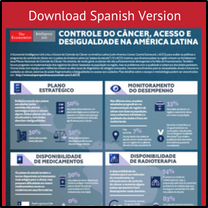Related content

Value-based healthcare in Sweden: Reaching the next level
The need to get better value from healthcare investment has never been more important as ageing populations and increasing numbers of people with multiple chronic conditions force governments to make limited financial resources go further.
These pressures, along with a greater focus on patient-centred care, have raised the profile of VBHC, especially in European healthcare systems. Sweden, with its highly comprehensive and egalitarian healthcare system, has been a leader in implementing VBHC from the beginning, a fact that was underscored in a 2016 global assessment of VBHC published by The Economist Intelligence Unit.
This paper looks at the ways in which Sweden has implemented VBHC, the areas in which it has faced obstacles and the lessons that it can teach other countries and health systems looking to improve the value of their own healthcare investments.

Breast cancer patients and survivors in the Asia-Pacific workforce
With more older women also working, how will the rising trend of breast cancer survivorship manifest in workplace policies, practices and culture? What challenges do breast cancer survivors face when trying to reintegrate into the workforce, or to continue working during treatment? How can governments, companies and society at large play a constructive role?
This series of reports looks at the situation for breast cancer survivors in Australia, New Zealand and South Korea. It finds that while progress has been made, more needs to be done, particularly in South Korea, where public stigma around cancer remains high.
The Cost of Silence
Cardiovascular diseases levy a substantial financial toll on individuals, their households and the public finances. These include the costs of hospital treatment, long-term disease management and recurring incidence of heart attacks and stroke. They also include the costs of functional impairment and knock-on costs as families may lose breadwinners or have to withdraw other family members from the workforce to care for a CVD patient. Governments also lose tax revenue due to early retirement and mortality, and can be forced to reallocate public finances from other budgets to maintain an accessible healthcare system in the face of rising costs.
As such, there is a need for more awareness of the ways in which people should actively work to reduce their CVD risk. There is also a need for more primary and secondary preventative support from health agencies, policymakers and nongovernmental groups.
To inform the decisions and strategies of these stakeholders, The Economist Intelligence Unit and EIU Healthcare, its healthcare subsidiary, have conducted a study of the prevalence and costs of the top four modifiable risk factors that contribute to CVDs across the Asian markets of China, Australia, Hong Kong, Japan, Singapore, South Korea, Taiwan and Thailand.
Download the report to learn more.
The road to a better normal: Breast Cancer patients and survivors in the EU workforce
Healthcare systems in Europe have slowly transformed breast cancer from a fatal condition into a (frequently chronic) disease. This transformation, while greatly welcome, has brought in its wake a growing societal challenge. An increasing number of female breast cancer patients and survivors of working age are capable of returning to employment and wish to do so.1 Not all of them succeed, however, and not simply for medical reasons. Breast cancer creates psychological and economic stress for the women directly involved, but it also impacts society as a whole.
Related content

Value-based healthcare in Sweden: Reaching the next level
The need to get better value from healthcare investment has never been more important as ageing populations and increasing numbers of people with multiple chronic conditions force governments to make limited financial resources go further.
These pressures, along with a greater focus on patient-centred care, have raised the profile of VBHC, especially in European healthcare systems. Sweden, with its highly comprehensive and egalitarian healthcare system, has been a leader in implementing VBHC from the beginning, a fact that was underscored in a 2016 global assessment of VBHC published by The Economist Intelligence Unit.
This paper looks at the ways in which Sweden has implemented VBHC, the areas in which it has faced obstacles and the lessons that it can teach other countries and health systems looking to improve the value of their own healthcare investments.

Breast cancer patients and survivors in the Asia-Pacific workforce
With more older women also working, how will the rising trend of breast cancer survivorship manifest in workplace policies, practices and culture? What challenges do breast cancer survivors face when trying to reintegrate into the workforce, or to continue working during treatment? How can governments, companies and society at large play a constructive role?
This series of reports looks at the situation for breast cancer survivors in Australia, New Zealand and South Korea. It finds that while progress has been made, more needs to be done, particularly in South Korea, where public stigma around cancer remains high.
The Cost of Silence
Cardiovascular diseases levy a substantial financial toll on individuals, their households and the public finances. These include the costs of hospital treatment, long-term disease management and recurring incidence of heart attacks and stroke. They also include the costs of functional impairment and knock-on costs as families may lose breadwinners or have to withdraw other family members from the workforce to care for a CVD patient. Governments also lose tax revenue due to early retirement and mortality, and can be forced to reallocate public finances from other budgets to maintain an accessible healthcare system in the face of rising costs.
As such, there is a need for more awareness of the ways in which people should actively work to reduce their CVD risk. There is also a need for more primary and secondary preventative support from health agencies, policymakers and nongovernmental groups.
To inform the decisions and strategies of these stakeholders, The Economist Intelligence Unit and EIU Healthcare, its healthcare subsidiary, have conducted a study of the prevalence and costs of the top four modifiable risk factors that contribute to CVDs across the Asian markets of China, Australia, Hong Kong, Japan, Singapore, South Korea, Taiwan and Thailand.
Download the report to learn more.
The road to a better normal: Breast Cancer patients and survivors in the EU workforce
The road to a better normal: Breast cancer patients and survivors in the EU workforce is an Economist Intelligence Unit report, sponsored by Pfizer. It investigates the challenges involved in the return to employment for a growing number of breast cancer patients and survivors of working age. In particular, it examines the growing number of women in this situation who wish to work, the barriers to doing so, and how key stakeholders could help.
More from this series

white paper
The road to a better normal: Breast Cancer patients and survivors in the EU...
Healthcare systems in Europe have slowly transformed breast cancer from a fatal condition into a (frequently chronic)

infographic
The road to a better normal: Breast Cancer patients and survivors in the EU...

case study
The road to a better normal: Country case study profiles
Related content

Value-based healthcare in Sweden: Reaching the next level
The need to get better value from healthcare investment has never been more important as ageing populations and increasing numbers of people with multiple chronic conditions force governments to make limited financial resources go further.
These pressures, along with a greater focus on patient-centred care, have raised the profile of VBHC, especially in European healthcare systems. Sweden, with its highly comprehensive and egalitarian healthcare system, has been a leader in implementing VBHC from the beginning, a fact that was underscored in a 2016 global assessment of VBHC published by The Economist Intelligence Unit.
This paper looks at the ways in which Sweden has implemented VBHC, the areas in which it has faced obstacles and the lessons that it can teach other countries and health systems looking to improve the value of their own healthcare investments.

Breast cancer patients and survivors in the Asia-Pacific workforce
With more older women also working, how will the rising trend of breast cancer survivorship manifest in workplace policies, practices and culture? What challenges do breast cancer survivors face when trying to reintegrate into the workforce, or to continue working during treatment? How can governments, companies and society at large play a constructive role?
This series of reports looks at the situation for breast cancer survivors in Australia, New Zealand and South Korea. It finds that while progress has been made, more needs to be done, particularly in South Korea, where public stigma around cancer remains high.
The Cost of Silence
Cardiovascular diseases levy a substantial financial toll on individuals, their households and the public finances. These include the costs of hospital treatment, long-term disease management and recurring incidence of heart attacks and stroke. They also include the costs of functional impairment and knock-on costs as families may lose breadwinners or have to withdraw other family members from the workforce to care for a CVD patient. Governments also lose tax revenue due to early retirement and mortality, and can be forced to reallocate public finances from other budgets to maintain an accessible healthcare system in the face of rising costs.
As such, there is a need for more awareness of the ways in which people should actively work to reduce their CVD risk. There is also a need for more primary and secondary preventative support from health agencies, policymakers and nongovernmental groups.
To inform the decisions and strategies of these stakeholders, The Economist Intelligence Unit and EIU Healthcare, its healthcare subsidiary, have conducted a study of the prevalence and costs of the top four modifiable risk factors that contribute to CVDs across the Asian markets of China, Australia, Hong Kong, Japan, Singapore, South Korea, Taiwan and Thailand.
Download the report to learn more.
Inequality in access to care undermines cancer-control efforts in Latin America
Related content
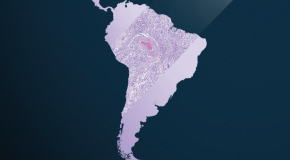
Cancer control, access and inequality in Latin America: A tale of light and...
The Economist Intelligence Unit has created the Latin America Cancer Control Scorecard (LACCS) to assess cancer-control policies and programmes in 12 Latin American countries. The LACCS shows that a number of countries in the region have put in place or strengthened their National Cancer Control Plans. However, plans are often not sufficiently comprehensive and lack funding. Progress has also been made in rolling out population-based cancer registries in the region, but issues with data quality and coverage persist. Other areas with room for improvement include high rates of late-stage diagnosis, insufficient resources for current and future cancer-care needs, fragmented healthcare systems and inequalities in access to care.
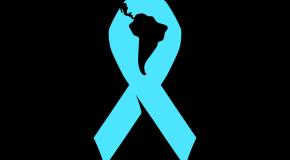
Tackling the burden of prostate cancer in Latin America: The prospects for...
Prostate cancer is placing an ever-growing burden on already strained Latin American healthcare systems, as both the incidence of the disease and mortality rates rise. For the purposes of this report, Latin America encompasses the territory from the northern border of Mexico to the southern tip of South America, including the Caribbean.
Prostate cancer is the leading cause of male cancer-related deaths in the region, and the disease and economic burden is set to rise in tandem with longevity and changes in lifestyle and diet.
Addressing this rapid growth is thus an urgent task, and one that higher-income countries around the world have addressed with some success through patient-centred healthcare. In the US, for example, integrated-care systems have been delivered though accountable care organisations that focus on patient needs.
The World Health Organisation (WHO) says that "integrated people-centred health services means putting the needs of people and communities, not diseases, at the centre of health systems, and empowering people to take charge of their own health".[i] However, integrated and patient-centred healthcare has seen a slow rate of adoption in the Latin America region. This suggests that much work needs to be done to sharpen the focus on respecting and responding to patient needs.
This report draws on findings from an Economist Intelligence Unit study, Assessing the burden of Prostate Cancer in Brazil,[ii] and in-depth interviews with ten experts on cancer care in the region. It assesses current prostate-cancer developments and provides real-world examples from Brazil, Colombia, Costa Rica and Mexico of how institutions are addressing, or failing to address, prostate cancer through a patient-centred approach.
Learn more by downloading our 'Assessing the burden of Prostate Cancer in Brazil' report below.
[i] WHO, WHO Framework on integrated people-centred health services. Available at: http://www.who.int/servicedeliverysafety/areas/people-centred-care/en/
[ii] The Economist Intelligence Unit, Assessing the burden of Prostate Cancer in Brazil, October 2016.

Breast cancer in Asia
The regional rise in age-standardised incidence has been running at four to eight times the global average since the 1990s. Meanwhile, the disease is no longer a concern large of developed countries but has become an increasingly important one in many emerging market states, where it is frequently now the most common form of cancer among females.
This report, Breast Cancer: The challenge and response, written by The Economist Intelligence Unit (EIU) and commissioned by Pfizer, examines the growing health burden of the disease in 10 major Asia-Pacific countries and territories, as well as how health systems are addressing the challenge.
Click here to view: Report | InfographicRelated content

Value-based healthcare in Sweden: Reaching the next level
The need to get better value from healthcare investment has never been more important as ageing populations and increasing numbers of people with multiple chronic conditions force governments to make limited financial resources go further.
These pressures, along with a greater focus on patient-centred care, have raised the profile of VBHC, especially in European healthcare systems. Sweden, with its highly comprehensive and egalitarian healthcare system, has been a leader in implementing VBHC from the beginning, a fact that was underscored in a 2016 global assessment of VBHC published by The Economist Intelligence Unit.
This paper looks at the ways in which Sweden has implemented VBHC, the areas in which it has faced obstacles and the lessons that it can teach other countries and health systems looking to improve the value of their own healthcare investments.

Breast cancer patients and survivors in the Asia-Pacific workforce
With more older women also working, how will the rising trend of breast cancer survivorship manifest in workplace policies, practices and culture? What challenges do breast cancer survivors face when trying to reintegrate into the workforce, or to continue working during treatment? How can governments, companies and society at large play a constructive role?
This series of reports looks at the situation for breast cancer survivors in Australia, New Zealand and South Korea. It finds that while progress has been made, more needs to be done, particularly in South Korea, where public stigma around cancer remains high.
The Cost of Silence
Cardiovascular diseases levy a substantial financial toll on individuals, their households and the public finances. These include the costs of hospital treatment, long-term disease management and recurring incidence of heart attacks and stroke. They also include the costs of functional impairment and knock-on costs as families may lose breadwinners or have to withdraw other family members from the workforce to care for a CVD patient. Governments also lose tax revenue due to early retirement and mortality, and can be forced to reallocate public finances from other budgets to maintain an accessible healthcare system in the face of rising costs.
As such, there is a need for more awareness of the ways in which people should actively work to reduce their CVD risk. There is also a need for more primary and secondary preventative support from health agencies, policymakers and nongovernmental groups.
To inform the decisions and strategies of these stakeholders, The Economist Intelligence Unit and EIU Healthcare, its healthcare subsidiary, have conducted a study of the prevalence and costs of the top four modifiable risk factors that contribute to CVDs across the Asian markets of China, Australia, Hong Kong, Japan, Singapore, South Korea, Taiwan and Thailand.
Download the report to learn more.
Cancer control access and inequality in Latin America: A tale of light and shadow
Related content

Value-based healthcare in Sweden: Reaching the next level
The need to get better value from healthcare investment has never been more important as ageing populations and increasing numbers of people with multiple chronic conditions force governments to make limited financial resources go further.
These pressures, along with a greater focus on patient-centred care, have raised the profile of VBHC, especially in European healthcare systems. Sweden, with its highly comprehensive and egalitarian healthcare system, has been a leader in implementing VBHC from the beginning, a fact that was underscored in a 2016 global assessment of VBHC published by The Economist Intelligence Unit.
This paper looks at the ways in which Sweden has implemented VBHC, the areas in which it has faced obstacles and the lessons that it can teach other countries and health systems looking to improve the value of their own healthcare investments.

Breast cancer patients and survivors in the Asia-Pacific workforce
With more older women also working, how will the rising trend of breast cancer survivorship manifest in workplace policies, practices and culture? What challenges do breast cancer survivors face when trying to reintegrate into the workforce, or to continue working during treatment? How can governments, companies and society at large play a constructive role?
This series of reports looks at the situation for breast cancer survivors in Australia, New Zealand and South Korea. It finds that while progress has been made, more needs to be done, particularly in South Korea, where public stigma around cancer remains high.
The Cost of Silence
Cardiovascular diseases levy a substantial financial toll on individuals, their households and the public finances. These include the costs of hospital treatment, long-term disease management and recurring incidence of heart attacks and stroke. They also include the costs of functional impairment and knock-on costs as families may lose breadwinners or have to withdraw other family members from the workforce to care for a CVD patient. Governments also lose tax revenue due to early retirement and mortality, and can be forced to reallocate public finances from other budgets to maintain an accessible healthcare system in the face of rising costs.
As such, there is a need for more awareness of the ways in which people should actively work to reduce their CVD risk. There is also a need for more primary and secondary preventative support from health agencies, policymakers and nongovernmental groups.
To inform the decisions and strategies of these stakeholders, The Economist Intelligence Unit and EIU Healthcare, its healthcare subsidiary, have conducted a study of the prevalence and costs of the top four modifiable risk factors that contribute to CVDs across the Asian markets of China, Australia, Hong Kong, Japan, Singapore, South Korea, Taiwan and Thailand.
Download the report to learn more.
Cancer control, access and inequality in Latin America: A tale of light and shadow
The Economist Intelligence Unit has created the Latin America Cancer Control Scorecard (LACCS) to assess cancer-control policies and programmes in 12 Latin American countries. The LACCS shows that a number of countries in the region have put in place or strengthened their National Cancer Control Plans. However, plans are often not sufficiently comprehensive and lack funding. Progress has also been made in rolling out population-based cancer registries in the region, but issues with data quality and coverage persist.
More from this series
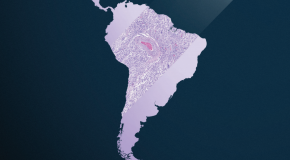
white paper
Cancer control access and inequality in Latin America: A tale of light and ...
Cancer control, access and inequality in Latin America: A tale of light and shadow is an Economist Intelligence

infographic
Cancer control access and inequality in Latin America: A tale of light and ...
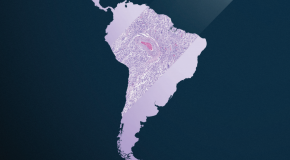
video
The Latin America Cancer Control Scorecard
We have assessed cancer-control policies and programmes in 12 Latin American countries. Learn more by watching our
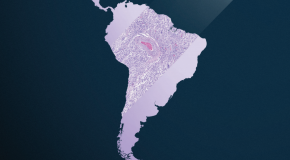
video
The Latin America Cancer Control Scorecard - Versión en español
Hemos evaluado políticas y programas para el control del cáncer en 12 países de América Latina. Obtenga más
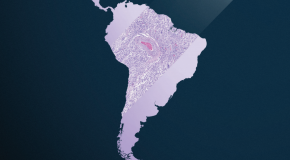
case study
Cancer in LATAM: Country Reports
Related content

Value-based healthcare in Sweden: Reaching the next level
The need to get better value from healthcare investment has never been more important as ageing populations and increasing numbers of people with multiple chronic conditions force governments to make limited financial resources go further.
These pressures, along with a greater focus on patient-centred care, have raised the profile of VBHC, especially in European healthcare systems. Sweden, with its highly comprehensive and egalitarian healthcare system, has been a leader in implementing VBHC from the beginning, a fact that was underscored in a 2016 global assessment of VBHC published by The Economist Intelligence Unit.
This paper looks at the ways in which Sweden has implemented VBHC, the areas in which it has faced obstacles and the lessons that it can teach other countries and health systems looking to improve the value of their own healthcare investments.

Breast cancer patients and survivors in the Asia-Pacific workforce
With more older women also working, how will the rising trend of breast cancer survivorship manifest in workplace policies, practices and culture? What challenges do breast cancer survivors face when trying to reintegrate into the workforce, or to continue working during treatment? How can governments, companies and society at large play a constructive role?
This series of reports looks at the situation for breast cancer survivors in Australia, New Zealand and South Korea. It finds that while progress has been made, more needs to be done, particularly in South Korea, where public stigma around cancer remains high.
The Cost of Silence
Cardiovascular diseases levy a substantial financial toll on individuals, their households and the public finances. These include the costs of hospital treatment, long-term disease management and recurring incidence of heart attacks and stroke. They also include the costs of functional impairment and knock-on costs as families may lose breadwinners or have to withdraw other family members from the workforce to care for a CVD patient. Governments also lose tax revenue due to early retirement and mortality, and can be forced to reallocate public finances from other budgets to maintain an accessible healthcare system in the face of rising costs.
As such, there is a need for more awareness of the ways in which people should actively work to reduce their CVD risk. There is also a need for more primary and secondary preventative support from health agencies, policymakers and nongovernmental groups.
To inform the decisions and strategies of these stakeholders, The Economist Intelligence Unit and EIU Healthcare, its healthcare subsidiary, have conducted a study of the prevalence and costs of the top four modifiable risk factors that contribute to CVDs across the Asian markets of China, Australia, Hong Kong, Japan, Singapore, South Korea, Taiwan and Thailand.
Download the report to learn more.
Tackling the burden of prostate cancer in Latin America: The prospects for patient-centred care
Prostate-cancer incidence, prevalence and mortality are rising rapidly in Latin America. Risk factors are highest in Brazil, which has a population that is ageing more rapidly than those elsewhere in Latin America and a greater proportion of males of African descent than in other countries in the region. Studies show that populations of African descent have the highest prostate-cancer incidence rates, for reasons that are still not fully understood. Other risk factors, such as unhealthy diets, are also becoming more prevalent in the region.
Related content

Breast cancer in Asia
The regional rise in age-standardised incidence has been running at four to eight times the global average since the 1990s. Meanwhile, the disease is no longer a concern large of developed countries but has become an increasingly important one in many emerging market states, where it is frequently now the most common form of cancer among females.
This report, Breast Cancer: The challenge and response, written by The Economist Intelligence Unit (EIU) and commissioned by Pfizer, examines the growing health burden of the disease in 10 major Asia-Pacific countries and territories, as well as how health systems are addressing the challenge.
Click here to view: Report | Infographic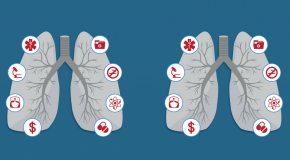
Reducing the burden: The economic and social costs of lung cancer in Italy
The incidence of lung cancer is rising in Italy, particularly among women. On the other hand Italy, like many of its European neighbours, is improving the ways that it fights lung cancern, both in a clinical sense and through an array of broader policies. By considering a variety of measures to discourage smoking, and by experimenting with innovative approaches to financing new treatments, Italy is starting to formulate plans to reduce the burdens of the disease.
This study, which assesses the burden of the disease and the policies aimed at reducing it, concludes that stronger policies are needed to wage a successful war on lung cancer in Italy.While important advances are being made in benefits coverage, and in financing clinical innovations, some of the basic ways to tackle the disease receive too little attention. These include recognising the disease's true demographics, and strengthening measures to discourage smoking, a major cause of the illness.

Controlling Cancer
Cancer is a common concern for countries in the Asia-Pacific region, yet treatment of the disease varies markedly among its various healthcare systems. A new study by the Economist Intelligence Unit (EIU)—Controlling cancer: The state of national cancer control plans in Asia, commissioned by Mundipharma— looks at the state of cancer control in Australia, China, India, Indonesia, Malaysia, Myanmar, South Korea, Taiwan, Thailand and Vietnam. Through in-depth desk research and interviews with healthcare officials, the report qualitatively assesses how these countries are dealing with cancer, focusing on similarities and differences in the implementation of National Cancer Control Plans (NCCPs).
The study finds that resources are a key success factor, with the three countries most successful in fighting the disease—Australia, South Korea and Taiwan—also the wealthiest. Within the developed markets studied, quality of governance also plays a crucial role in cancer control: the study highlights that the existence of a NCCP with clear national objectives, quality assurance mechanisms and integrated case management account for close to a quarter of the difference in cancer outcomes.
Wealthy countries might be better at treating cancer but the disease is much more prevalent there: it accounts for between 25% and 30% of deaths in Australia, South Korea and Taiwan compared to 7% in India and 13% in Indonesia.
Tackling the burden of prostate cancer in Latin America: The prospects for patient-centred care
Prostate cancer is placing an ever-growing burden on already strained Latin American healthcare systems, as both the incidence of the disease and mortality rates rise. For the purposes of this report, Latin America encompasses the territory from the northern border of Mexico to the southern tip of South America, including the Caribbean.
Prostate cancer is the leading cause of male cancer-related deaths in the region, and the disease and economic burden is set to rise in tandem with longevity and changes in lifestyle and diet.
More from this series
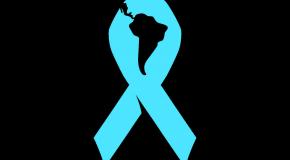
white paper
Tackling the burden of prostate cancer in Latin America: The prospects for ...
Prostate-cancer incidence, prevalence and mortality are rising rapidly in Latin America. Risk factors are highest in
Related content

Breast cancer in Asia
The regional rise in age-standardised incidence has been running at four to eight times the global average since the 1990s. Meanwhile, the disease is no longer a concern large of developed countries but has become an increasingly important one in many emerging market states, where it is frequently now the most common form of cancer among females.
This report, Breast Cancer: The challenge and response, written by The Economist Intelligence Unit (EIU) and commissioned by Pfizer, examines the growing health burden of the disease in 10 major Asia-Pacific countries and territories, as well as how health systems are addressing the challenge.
Click here to view: Report | Infographic
Reducing the burden: The economic and social costs of lung cancer in Italy
The incidence of lung cancer is rising in Italy, particularly among women. On the other hand Italy, like many of its European neighbours, is improving the ways that it fights lung cancern, both in a clinical sense and through an array of broader policies. By considering a variety of measures to discourage smoking, and by experimenting with innovative approaches to financing new treatments, Italy is starting to formulate plans to reduce the burdens of the disease.
This study, which assesses the burden of the disease and the policies aimed at reducing it, concludes that stronger policies are needed to wage a successful war on lung cancer in Italy.While important advances are being made in benefits coverage, and in financing clinical innovations, some of the basic ways to tackle the disease receive too little attention. These include recognising the disease's true demographics, and strengthening measures to discourage smoking, a major cause of the illness.

Controlling Cancer
Cancer is a common concern for countries in the Asia-Pacific region, yet treatment of the disease varies markedly among its various healthcare systems. A new study by the Economist Intelligence Unit (EIU)—Controlling cancer: The state of national cancer control plans in Asia, commissioned by Mundipharma— looks at the state of cancer control in Australia, China, India, Indonesia, Malaysia, Myanmar, South Korea, Taiwan, Thailand and Vietnam. Through in-depth desk research and interviews with healthcare officials, the report qualitatively assesses how these countries are dealing with cancer, focusing on similarities and differences in the implementation of National Cancer Control Plans (NCCPs).
The study finds that resources are a key success factor, with the three countries most successful in fighting the disease—Australia, South Korea and Taiwan—also the wealthiest. Within the developed markets studied, quality of governance also plays a crucial role in cancer control: the study highlights that the existence of a NCCP with clear national objectives, quality assurance mechanisms and integrated case management account for close to a quarter of the difference in cancer outcomes.
Wealthy countries might be better at treating cancer but the disease is much more prevalent there: it accounts for between 25% and 30% of deaths in Australia, South Korea and Taiwan compared to 7% in India and 13% in Indonesia.
Related content

Value-based healthcare in Sweden: Reaching the next level
The need to get better value from healthcare investment has never been more important as ageing populations and increasing numbers of people with multiple chronic conditions force governments to make limited financial resources go further.
These pressures, along with a greater focus on patient-centred care, have raised the profile of VBHC, especially in European healthcare systems. Sweden, with its highly comprehensive and egalitarian healthcare system, has been a leader in implementing VBHC from the beginning, a fact that was underscored in a 2016 global assessment of VBHC published by The Economist Intelligence Unit.
This paper looks at the ways in which Sweden has implemented VBHC, the areas in which it has faced obstacles and the lessons that it can teach other countries and health systems looking to improve the value of their own healthcare investments.

Breast cancer patients and survivors in the Asia-Pacific workforce
With more older women also working, how will the rising trend of breast cancer survivorship manifest in workplace policies, practices and culture? What challenges do breast cancer survivors face when trying to reintegrate into the workforce, or to continue working during treatment? How can governments, companies and society at large play a constructive role?
This series of reports looks at the situation for breast cancer survivors in Australia, New Zealand and South Korea. It finds that while progress has been made, more needs to be done, particularly in South Korea, where public stigma around cancer remains high.
The Cost of Silence
Cardiovascular diseases levy a substantial financial toll on individuals, their households and the public finances. These include the costs of hospital treatment, long-term disease management and recurring incidence of heart attacks and stroke. They also include the costs of functional impairment and knock-on costs as families may lose breadwinners or have to withdraw other family members from the workforce to care for a CVD patient. Governments also lose tax revenue due to early retirement and mortality, and can be forced to reallocate public finances from other budgets to maintain an accessible healthcare system in the face of rising costs.
As such, there is a need for more awareness of the ways in which people should actively work to reduce their CVD risk. There is also a need for more primary and secondary preventative support from health agencies, policymakers and nongovernmental groups.
To inform the decisions and strategies of these stakeholders, The Economist Intelligence Unit and EIU Healthcare, its healthcare subsidiary, have conducted a study of the prevalence and costs of the top four modifiable risk factors that contribute to CVDs across the Asian markets of China, Australia, Hong Kong, Japan, Singapore, South Korea, Taiwan and Thailand.
Download the report to learn more.

